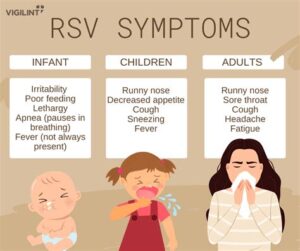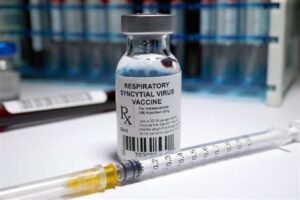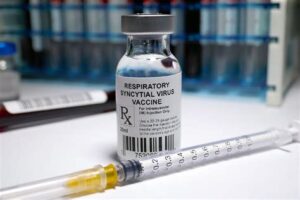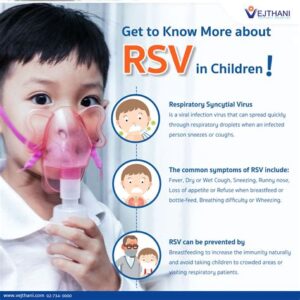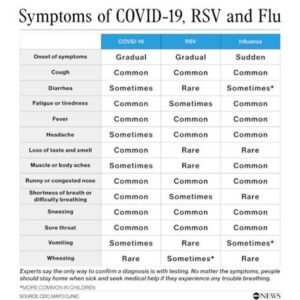Explore RSV vaccine allergic reactions, their symptoms, potential causes, treatment options, and preventative measures to ensure safety and understanding for all.The RSV (respiratory syncytial virus) vaccine is a critical tool in protecting vulnerable populations, particularly infants and older adults, from severe respiratory illness. However, like any medical intervention, it carries the risk of allergic reactions in some individuals. This blog post aims to shed light on the complexities of allergic responses to the RSV vaccine. We’ll explore how these reactions manifest, common symptoms to watch for, and the potential causes behind them. Additionally, we will discuss treatment options available for those who experience allergic reactions and outline preventative measures and risk factors that can help minimize these risks. By understanding the implications of RSV vaccine allergic reactions, we can better equip ourselves to navigate this important health issue. Join us as we uncover essential information for patients, caregivers, and healthcare providers alike.
Understanding RSV Vaccine Allergic Reactions
As the medical community focuses on developing and administering the RSV vaccine, understanding the potential for allergic reactions is crucial for healthcare providers and patients alike. The respiratory syncytial virus (RSV) can lead to severe respiratory infections, especially in infants and older adults, so the vaccine aims to provide protection. However, like with any vaccine, there may be a risk of experiencing an allergic reaction.
Recognizing the symptoms of a vaccine allergic reaction is vital. Common symptoms can include hives, swelling, difficulty breathing, and anaphylactic shock in severe cases. If an individual has a history of allergies, it’s essential to inform healthcare professionals before vaccination to assess the risk level and take necessary precautions.
In summary, while the RSV vaccine offers significant benefits, awareness of potential allergic reactions is necessary. Patients, caregivers, and healthcare providers should be well-informed about symptoms and protocols for addressing any reactions that may occur post-vaccination.
Identifying Common Symptoms of Allergic Reactions
When it comes to the RSV vaccine, being aware of the symptoms of an allergic reaction is crucial for timely and effective management. While most individuals experience no significant side effects, some may display signs that warrant immediate attention.
- Skin reactions: This may manifest as hives, redness, or skin irritation.
- Respiratory issues: Symptoms such as wheezing, shortness of breath, or difficulty breathing can occur.
- Gastrointestinal symptoms: Some individuals may experience nausea, vomiting, or diarrhea.
- Swelling: This can include swelling of the face, lips, or throat, particularly concerning in severe reactions.
- Cardiovascular symptoms: In rare cases, individuals may experience a rapid heartbeat or a drop in blood pressure.
If you or someone else shows signs of these symptoms following the administration of the RSV vaccine, it is essential to seek medical attention promptly. Early intervention can prevent complications and ensure the best possible outcome.
Potential Causes of Allergic Reactions to RSV Vaccine
When considering the RSV vaccine, it is crucial to understand the potential causes of allergic reactions that may arise. Allergic reactions can manifest for various reasons, and identifying these potential causes can help healthcare providers and patients make informed decisions regarding vaccinations.
One of the primary factors that can lead to an allergic reaction is the presence of specific components within the vaccine itself. Many vaccines, including the RSV vaccine, may contain adjuvants, preservatives, or stabilizers that are necessary for the vaccine’s efficacy but can trigger allergic responses in some individuals.
- Gelatin – Often used as a stabilizer.
- Egg proteins – Found in some vaccines, derived from the process of development.
- Neomycin – An antibiotic that may be present in some formulations.
Another potential cause of an allergic reaction is an individual’s unique immune response. Each person’s immune system may react differently to vaccinations based on their genetic background, personal history of allergies, and overall health status. Those with a history of allergic conditions, such as asthma, eczema, or food allergies, might be at a heightened risk for experiencing reactions.
Additionally, previous reactions to vaccines can also indicate a potential for future allergic reactions. Medical professionals often take a detailed vaccination history before administering a new vaccine, especially if the patient has experienced adverse reactions in the past. Understanding these factors can aid in identifying individuals who may be at an increased risk of developing an allergic reaction to the RSV vaccine.
Treatment Options for RSV Vaccine Allergic Reactions
Experiencing an allergic reaction to the RSV vaccine can be concerning. While these reactions are generally rare, it is crucial to understand the treatment options available to manage symptoms effectively. The appropriate response may vary depending on the severity of the reaction.
- Antihistamines: Over-the-counter medications like diphenhydramine can provide relief from itching and swelling.
- Topical corticosteroids: Creams or ointments can help reduce inflammation and soothe the affected area.
In more severe cases, such as anaphylaxis, immediate medical intervention is required.
- Adrenaline (Epinephrine): Administering this medication can counteract severe allergic reactions. It’s essential to have an epinephrine auto-injector available for those who are at risk.
- Intravenous (IV) fluids: If a person experiences shock, IV fluids may be necessary to stabilize their condition.
- Oxygen therapy: To ensure adequate oxygen supply during a severe reaction, supplemental oxygen may be administered.
It’s advisable for anyone who has experienced an allergic reaction to the RSV vaccine to consult a healthcare provider for a tailored treatment plan and to discuss the possibility of further evaluations.
Preventative Measures and Risk Factors for Allergic Reactions
When preparing for receiving the RSV vaccine, it is essential to understand the available preventative measures and the risk factors that could lead to allergic reactions. By being informed and proactive, individuals can minimize their chances of encountering unwanted side effects.
| Preventative Measures | Risk Factors |
|---|---|
| Consult your healthcare provider about your medical history. | Previous history of allergic reactions to vaccines. |
| Be aware of any known allergies such as egg, latex, or preservatives. | Family history of allergic disorders. |
| Consider skin testing for individuals with a high risk of allergy. | Pre-existing asthma or other respiratory conditions. |
| Stay at the vaccination center for at least 15-30 minutes for monitoring. | Age-specific factors; infants and young children are at higher risk. |
By taking these preventative measures, one can greatly reduce the chances of experiencing an allergic reaction. Recognizing risk factors is equally important, as they can help identify patients who may need additional precautions before vaccination.
Always remember that while the RSV vaccine can be essential for preventing respiratory illnesses, awareness and preparation are key to ensuring a safe vaccination experience. Consult with h
Frequently Asked Questions
What is RSV?
Respiratory Syncytial Virus (RSV) is a common virus that causes respiratory infections, especially in infants and young children.
What are the symptoms of an allergic reaction to the RSV vaccine?
Symptoms may include hives, swelling of the face or throat, difficulty breathing, rapid heartbeat, or a severe drop in blood pressure.
Who should be cautious about getting the RSV vaccine?
Individuals with a history of allergic reactions to vaccines, severe allergies, or specific health conditions should consult their healthcare provider before getting the RSV vaccine.
How common are allergic reactions to vaccines?
Allergic reactions to vaccines are rare, but they can occur; monitoring after vaccination is important to address any potential reactions.
What should someone do if they experience an allergic reaction after receiving the RSV vaccine?
Seek immediate medical attention, especially if the reaction includes difficulty breathing or swelling, as these may indicate a severe allergic response.
Are there any alternatives to the RSV vaccine for those with allergies?
Consulting a healthcare provider is essential; they may suggest alternative preventive measures or adjust vaccination schedules based on individual health needs.
What is the importance of the RSV vaccine?
The RSV vaccine is crucial for reducing the severity of respiratory illnesses caused by RSV, especially in vulnerable populations such as infants and older adults.

